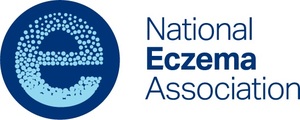New Research Reveals Out-Of-Pocket Cost Of Eczema
Findings shine light on the extent of the financial burden as well as specific categories of expenses.
NOVATO, Calif., Feb. 2, 2021 /PRNewswire/ -- The National Eczema Association (NEA) today announced the publication of its research revealing the out-of-pocket costs of eczema, or atopic dermatitis (AD), for patients and caregivers in the U.S.
An estimated 31 million Americans live with eczema, but, until now, we have not known the extent of financial costs that they bear out-of-pocket (OOP) to manage their disease.
The NEA research team set out to fill this gap with a survey of its eczema patient and caregiver community. The findings, analyzed in collaboration with researchers Raj Chovatiya, MD, PhD (Northwestern University) and Jonathan Silverberg, MD, PhD, MPH (The George Washington University School of Medicine and Health Sciences), have been published (in part) in Dermatitis.
Details from the new study reveal that 42% of Americans living with atopic dermatitis (AD) spend $1,000 or more OOP every year to manage their eczema.1 While the median annual estimated OOP expense is $600 across all survey respondents, annual OOP costs equal to or exceeding $5,000 were reported by 8.5% of participants.1
Prior to this research, there were no comprehensive studies on the OOP financial burden facing Americans living with AD, nor current research that investigated this important aspect of care from the patient and caregiver perspective. This is important news for people living with AD because the study highlights critical opportunities where healthcare providers can work together with their patients to minimize financial burden while developing and modifying treatment plans.
The 1,118 survey responses provided important new real-world information from a large cross-section of the AD community. Eligible respondents to the 25-question voluntary survey had to be U.S. residents aged 18 year or older, living with AD or providing primary care for someone with AD.
The study grouped 22 unique expenses into three main categories: prescriptions and healthcare provider office and hospital visits (including co-pays); non-prescription products like moisturizers, dietary supplements, hygiene products and sleep aids; and supportive care items such as clothing, bedding, cleaning products, as well as complementary therapies like traditional Chinese medicine.
The pervasiveness and the specifics of reported OOP costs provide a new, more detailed picture of this financial burden, including more and less common expenses. For example, 68.7% of responders reported OOP copays and/or deductibles for visits to their healthcare provider(s) over the past 30 days, 19% indicated OOP expenses for complementary/alternative medicines, yet nearly all responders, 94.3%, paid OOP for non-prescription over-the-counter moisturizer. Collectively, the study results highlight the wide array and range of OOP for health-related expenses incurred by patients to manage their disease.
This study also found that nearly half (48.6%) of AD patient and caregiver respondents had OOP costs for prescriptions not covered by insurance. The resulting financial burden of this finding is especially troubling in light of how many responders additionally reported using multiple prescriptions for treatment; 89.6% of responders had at least one prescription to treat their AD, while 57.5% percent had three or more different prescriptions. This could provide an opportunity for changes in how treatment options are covered by insurance, and how healthcare providers consider different therapeutic approaches in designing more affordable treatment plans, with knowledge of their patients' perspectives and financial implications. Some suggested treatment recommendations may be unaffordable for patients, either overall, or due to changes in their insurance or financial status over time.
The survey responses also provide a compelling portrait of how disruptive AD really is, in both frequency and severity, for Americans living with the condition: 74% percent of responders indicated their AD was either severe or moderate; 39.4% had more than 11 flare days in the past month; and 22.4% had seen their healthcare provider(s) at least 5 times in the past year for AD treatment.
The psychological and emotional impacts of AD combined with its prevalence in the American population also raises urgent questions about the availability and affordability of mental health services, as 36.5% of respondents reported additional diagnoses of anxiety and/or depression. However, the article suggests that the "OOP costs for mental health services were quite low among respondents, which was surprising given the strong association between AD and mental health disorders, including depression, anxiety, and psychological distress." With less than 15% of responders reporting expenses for mental health services, there is need for the healthcare community to increase screening for mental health symptoms, as well as OOP cost-sensitive coverage considerations to facilitate use of these support services by the AD patient community.
Additional findings and insights from this study are expected to be published soon.
For more information about this study and other research conducted by NEA, visit: NationalEczema.org/surveys.
About the National Eczema Association (NEA)
Founded in 1988, NEA is the largest, 501(c)(3) non-profit, US patient advocacy organization serving people affected by eczema. NEA provides people with eczema (and the people who love them) with the information they need to live their best lives, while fast-tracking research towards better treatments and – ultimately – a cure. NEA offers extensive resources including the Seal of Acceptance product directory to find suitable personal care and household products; Eczema Provider Finder to find doctors; NEA Ambassadors, for those looking to get involved in advocacy, research and outreach; EczemaWise, an app that helps patients and caregivers track symptoms and triggers and share information with their doctor; and much more. For more information, visit NationalEczema.org.
1 Smith Begolka W, Chovatiya Raj, Thibau I, Silverberg J. Financial Burden of Atopic Dermatitis Out-of-Pocket Health Care Expenses in the United States. Dermatitis: 2020; 10.1097
SOURCE National Eczema Association

WANT YOUR COMPANY'S NEWS FEATURED ON PRNEWSWIRE.COM?
Newsrooms &
Influencers
Digital Media
Outlets
Journalists
Opted In





Share this article